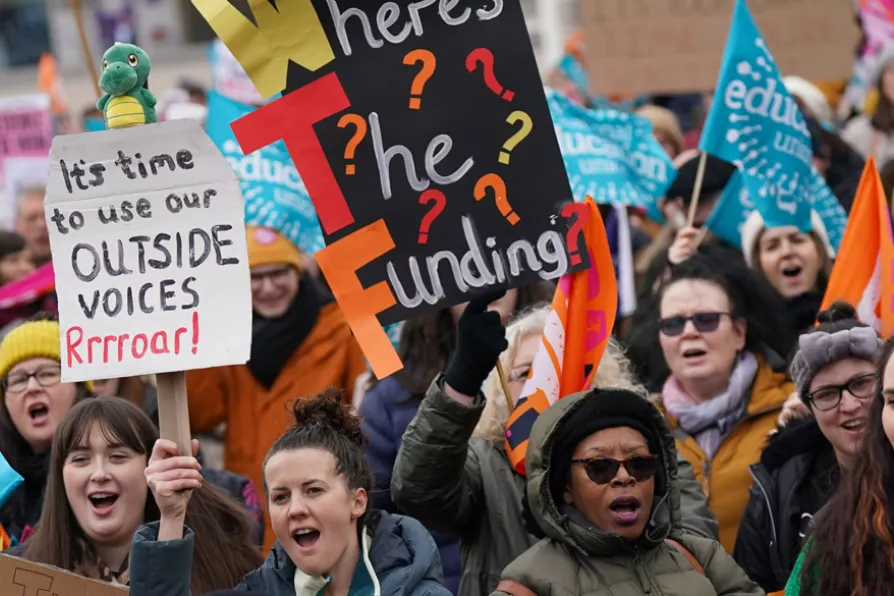Honduras may not be as much in the spotlight as Venezuela and Cuba right now, but Trump's circling vultures are making their move. JOHN PERRY reports

 STARMER, ARE YOU LISTENING? NEU, TUC, PCS and UCU protest in Birmingham city centre, on February 2023, to protest against plans for a new law on minimum service levels during strikes
STARMER, ARE YOU LISTENING? NEU, TUC, PCS and UCU protest in Birmingham city centre, on February 2023, to protest against plans for a new law on minimum service levels during strikes
EACH day brings fresh evidence that Keir Starmer is shifting the Labour Party rightwards in his effort to create a “patriotic,” pro-business, pro-Nato party in which members have little or no say on policy.
Starmer was supposedly elected on a platform of “continuity Corbyn,” promising to maintain the former leader’s platform of popular policies that won an unprecedented 10 per cent vote swing to Labour in 2017 after the party saw its vote decline in successive elections since 2001.
However, following the snap essentially single-issue Brexit election of 2019, the Jeremy Corbyn project of returning the party to its democratic socialist roots reached a dead end, and the party’s traditional parliamentary and bureaucratic elite seized back control.

Starmer sabotaged Labour with his second referendum campaign, mobilising a liberal backlash that sincerely felt progressive ideals were at stake — but the EU was then and is now an entity Britain should have nothing to do with, explains NICK WRIGHT

In the run-up to the Communist Party congress in November ROB GRIFFITHS outlines a few ideas regarding its participation in the elections of May 2026

While Reform poses as a workers’ party, a credible left alternative rooted in working-class communities would expose their sham — and Corbyn’s stature will be crucial to its appeal, argues CHELLEY RYAN

JOE GILL looks at research on the reasons people voted as they did last week and concludes Labour is finished unless it ditches Starmer and changes course










